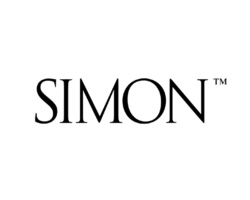

The strong balance sheet is a key differentiator in today's environment. SPG, on the other hand, will again play offense and be able to create value for its long-term-oriented shareholders.
#SIMON PROPERTY GROUP INVESTORS MAC#
This means that if we go into a recession and times get tough again, then MAC will have to play defense and shareholders will be at risk of another equity issuance. Even after diluting its shareholders, its balance sheet is still subpar at best with high leverage that will need to be refinanced and/or paid off in the coming years. SPG has a fortress, investment-grade-rated balance sheet with low debt, long maturities, and lots of liquidity. On the flip side, a higher valuation (SPG) can be well justified if the management is actually creating value for shareholders. So all in all, SPG has better management and I think that this is very important in this specific sector.Ī lower valuation (MAC) does not help you if the management is then going to dilute you later. They are very active in their approach, developing new assets, selling others, buying retailers, etc. SPG isn't just a passive mall landlord that's waiting to collect rent checks.
#SIMON PROPERTY GROUP INVESTORS SKIN#
The management has a lot of skin in the game and they have repetitively made additional purchases with their own money.As an example, they bought back a bunch of shares at heavily discounted prices during the pandemic and also bought out a few retailers in distressed deals.They have maintained a fortress balance sheet, recognizing the risks of the mall sector, and this has allowed them to play offense when others were struggling to survive.They have a long track record of significant outperformance and a history of acting in the best interest of shareholders. SPG, on the other hand, is one of the best-managed REITs in the world. They claimed that $95 per share was too low in 2015, but then end up selling shares at a small fraction of that. They diluted shareholders during the pandemic by issuing a lot of shares at extremely low prices.They took on too much debt leading up to the pandemic, not recognizing that a mall REIT probably should be more prudent in today's day and age.They refused to sell the company at $95.50 per share back in 2015 when SPG offered to buy it out.Over a multi-decade time period, they have massively underperformed REIT sector averages ( VNQ) and the management has made quite a few questionable decisions over the years: MAC has a questionable track record, to say the least. Moreover, MAC is also priced at a lower valuation and higher yield than SPG:īut even despite that, if I had to pick one REIT, it would be SPG because of two key reasons: It is a tough question to answer because both REITs have unique pros and cons.īoth REITs own class-A assets that are performing very well, but MAC's properties are even higher quality than those of SPG as evidenced by its higher average sales per square foot:

I own small positions in the two leading mall REITs, Simon Property Group ( NYSE: SPG) and Macerich ( NYSE: MAC), and I often get asked: Which is the best to buy today? and as a result, more retailers will fail, putting pressure on rents and occupancy rates.īut despite that, there's still a minority of contrarian investors who continue to invest in these mall REITs because valuations are exceptionally low, yields are high, and their fundamental performance is actually a lot better than what's implied by their valuations. less money will end up being spent at malls. Most investors are staying away from mall REITs because of the fear that the continued growth of Amazon ( AMZN) will lead to more pain over the coming decade.Īs more people shop online.


 0 kommentar(er)
0 kommentar(er)
